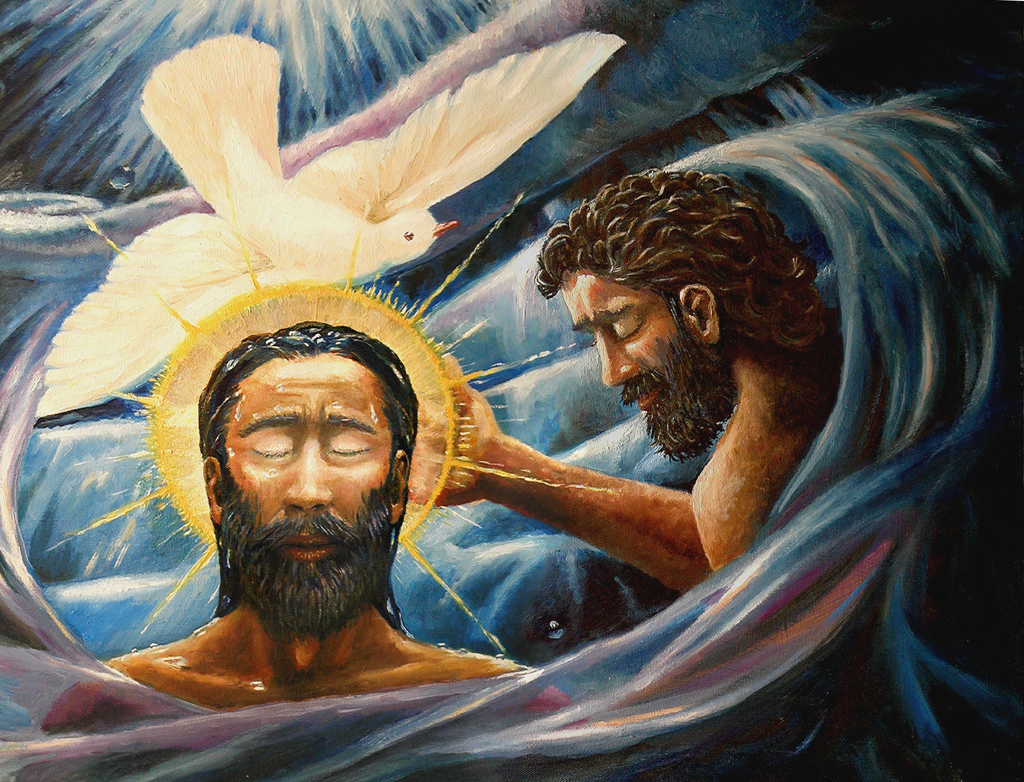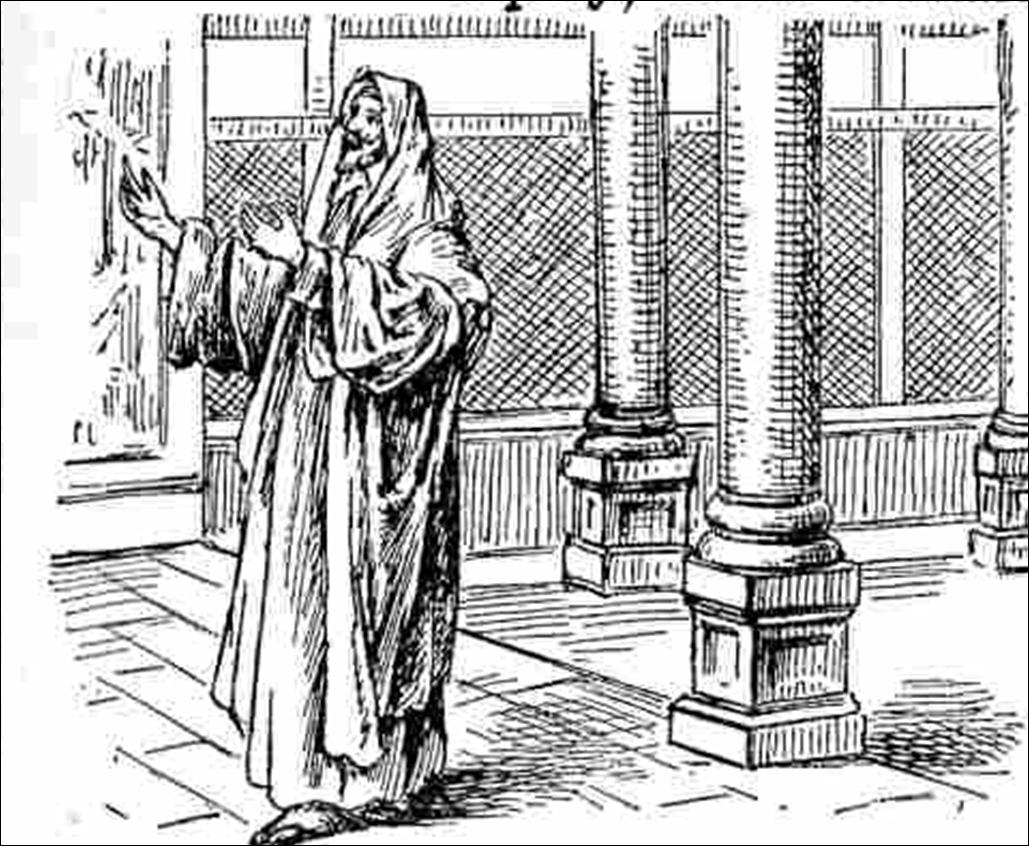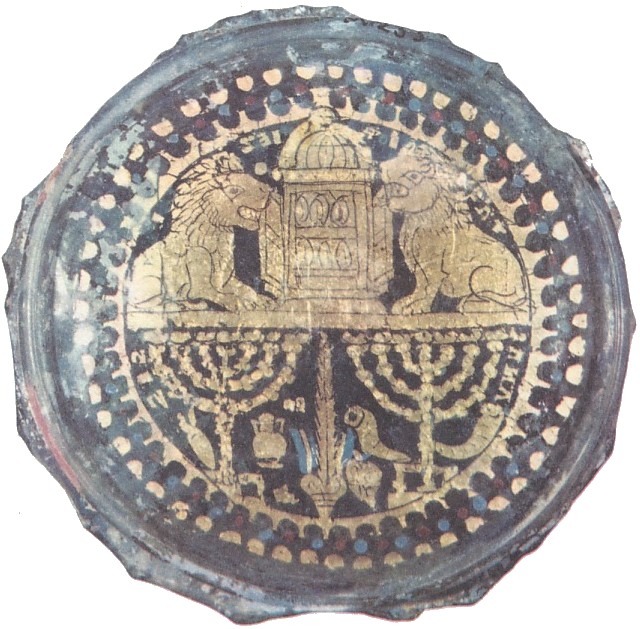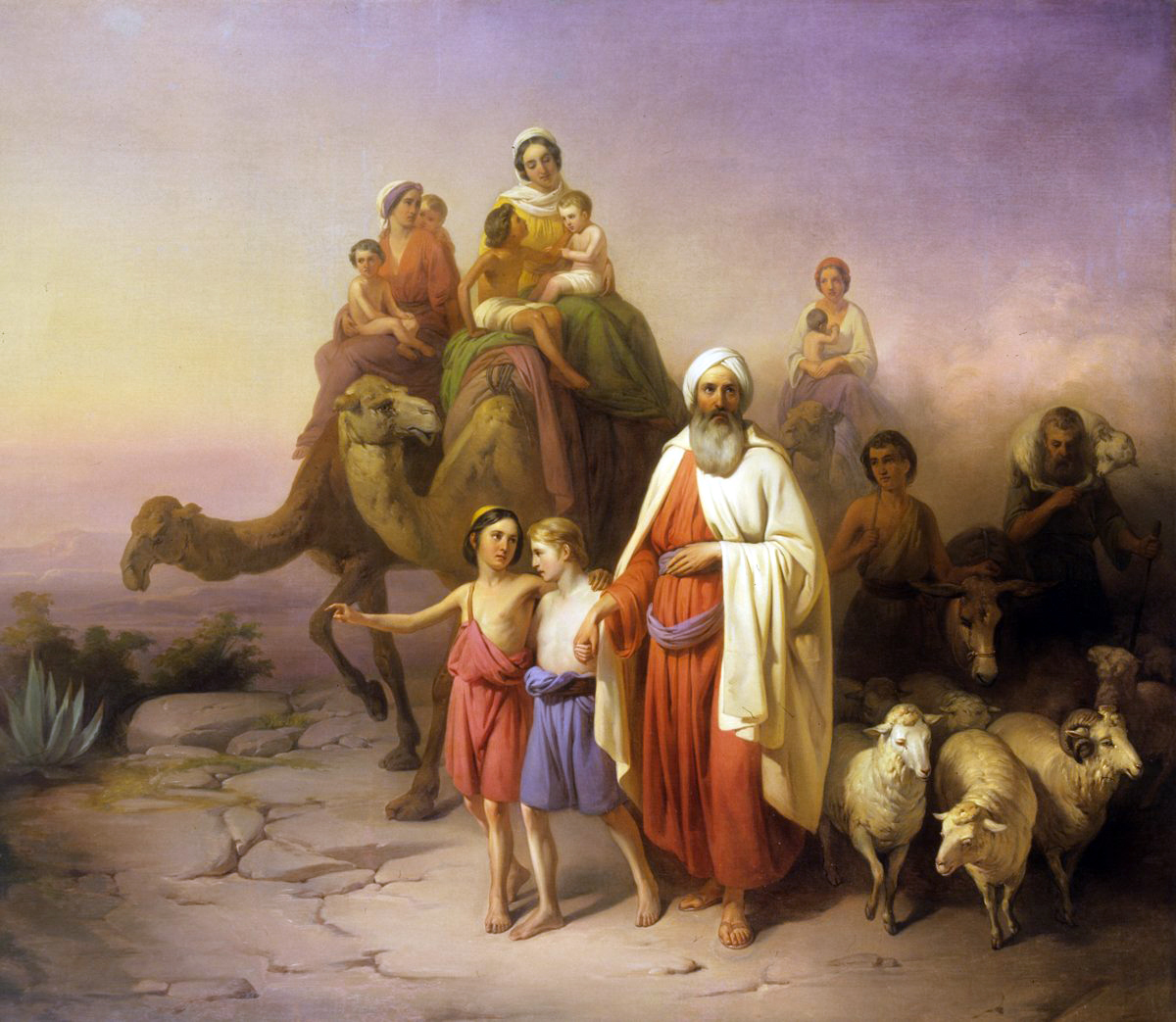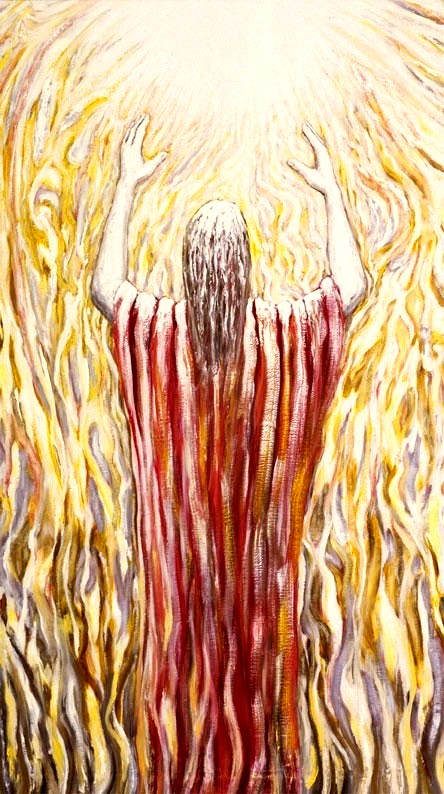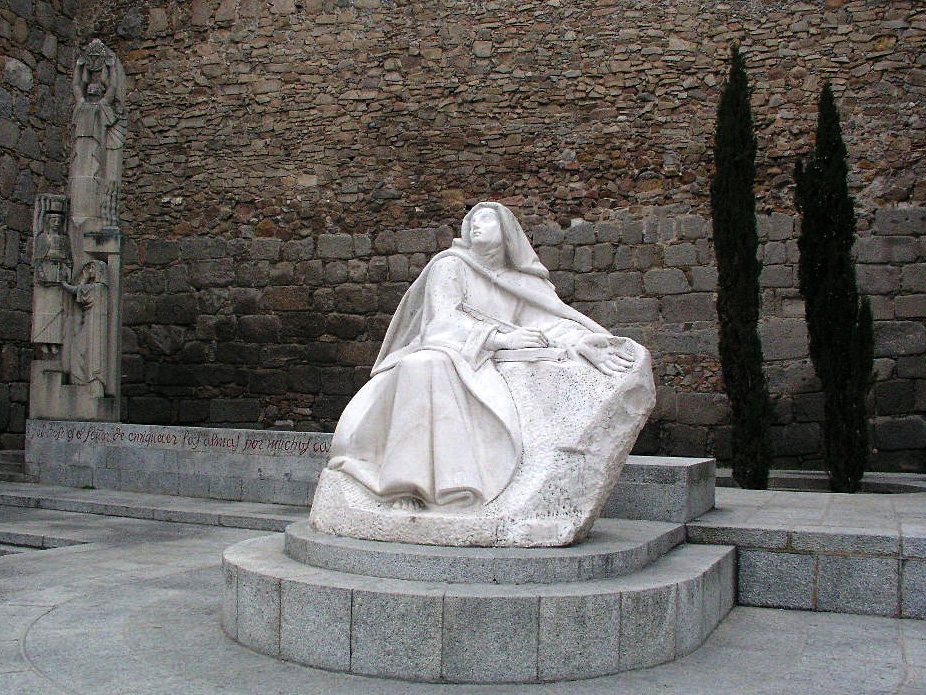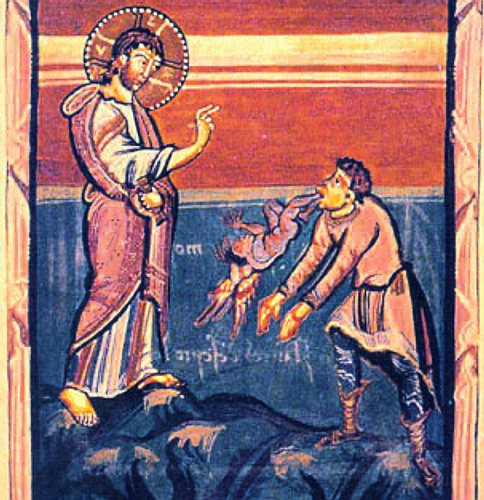Homily of Fr. Paul Panaretos, S.J.
For Us and In Us
St. Paul named ways Holy Spirit, who dwells in [us],/1/ works. To summarize Chapter 8 and what Holy Spirit has accomplished:
•Holy Spirit raised Jesus from death, infusing new power to live for God in each disciple.
•Holy Spirit allows us to identify with risen Jesus, who suffered and died.
•Holy Spirit makes us heirs with our risen Lord so that we have equal standing in God’s heart.
•Holy Spirit enlarges our freedom to express in action God’s desire to save.
•Holy Spirit empowers us to endure afflictions with hope in divine glory, trusting in what we do not see.
 We just heard one more Spirit-work: The Spirit comes to the aid of our weakness; for we do not know how to pray as we ought, but the Spirit himself intercedes with inexpressible groanings. If earlier we missed the intimacy among Jesus, his Father, their Spirit and us, St. Paul expressed that work of Holy Spirit is remarkably intimate and powerful! Holy Spirit is not only within us, Holy Spirit comes to the aid of our weakness and prays in us and for us.
We just heard one more Spirit-work: The Spirit comes to the aid of our weakness; for we do not know how to pray as we ought, but the Spirit himself intercedes with inexpressible groanings. If earlier we missed the intimacy among Jesus, his Father, their Spirit and us, St. Paul expressed that work of Holy Spirit is remarkably intimate and powerful! Holy Spirit is not only within us, Holy Spirit comes to the aid of our weakness and prays in us and for us.The phrase inexpressible groanings causes me to marvel. I may think prayer is one-way, but Holy Spirit prays in and for us in ways which outstrip human communication or any way we may imagine.
The prayer of Holy Spirit in me and for me seeks my union with God and my share in divine life. The final sentence, those [God] predestined he also called; and those he called he also justified; and those he justified he also glorified, describes and defends God’s eternal purpose. No one can pin down God’s desire to bring all people and all things into the orbit of divine life. God is always desiring to bring all people and all things into God’s recreated, new, unending life. Holy Spirit is that personal power promised by Jesus and lavished by his Father to accomplish that within us at every moment.
____________
/1/ Chapter 8. 11
______________________________________________
Wiki-image of Holy Spirit window in St. Peter's Basilica is in the public domain.

